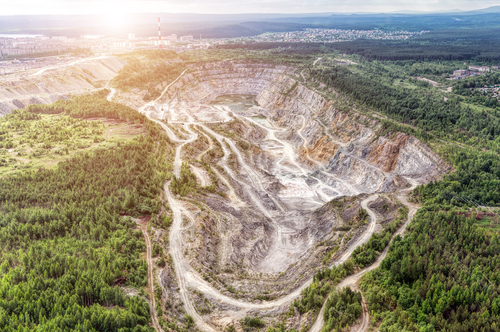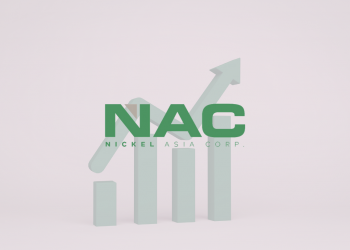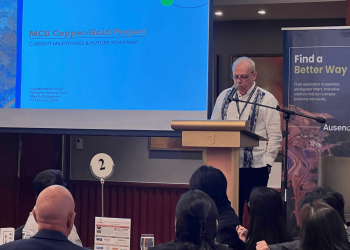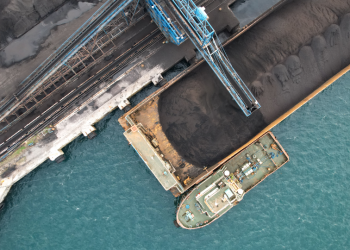Stratbase Albert Del Rosario (ADR) Institute said the 4.4 percent drop in the Philippines’s Foreign Direct Investment (FDI) in 2018 could have been countered by the investments blocked by the open-pit mining ban.
The independent strategic research organization claimed that the country could have driven economic and regional growth even more if only permission to operate was granted in underdeveloped mining sites that received investments.
For instance, ADRI President Victor Andres C. Manhit mentioned Tampakan copper-gold deposit in South Cotabato, which is believed to be one of the largest undeveloped deposits in the world.
“Once developed, the mine has the potential to be a key driver of both national and regional growth, with an average yield of 375,000 tonnes per annum of copper and 36,000 ounces per annum of gold in concentrate over a 17-year period. A simple computation based on prevailing copper and gold prices translates to some P126.6 billion and P24.2 billion in annual potential, respectively,” Manhit said in a BusinessWorld report.
The Mining Industry Coordinating Council (MICC) unsuccessful created an agreement on whether to lift the Department Administrative Order (DAO) 2017-10 which imposed a ban on open pit mining.
A loss of $ 23 billion investment for 11 mining projects in 2016 just faced pending status due to said open pit mining ban. The country’s FDI in 2018 only amounted to 9.8 billion.
Other pending multi-billion dollar investments include Nadecor’s Kingking project in Davao del Norte, Davao Oriental’s Asiaticus project, Lepanto Mining’s FSE project in Benguet, and Masbate’s Philsaga Mining contract, among others.
bento4d
situs togel
slot gacor
situs toto
situs toto
bento4d
situs togel online
situs togel
sydney night
bento4d
situs slot
bento4d
situs togel
situs toto
slot resmi
situs gacor
situs slot
toto togel
toto slot
thepubtheatre
toto togel
slot gacor
toto slot
slot online
situs togel
toto slot
toto togel
bento4d
slot thailand
situs toto
gethighered.com
rtp slot
situs toto
toto slot
slot gacor hari ini
situs toto
toto slot
situs gacor
toto slot
slot resmi
situs toto
togel
slot online
www.leon.uml.edu.ni
toto slot
toto slot
situs toto
situs toto
situs togel
situs toto
situs slot
toto slot
situs gacor
toto togel
toto slot
toto togel
link slot gacor
toto togel
pafiboalemokab.org
toto togel
bento4d
toto slot
link slot
situs slot
togel online
slot resmi
toto togel
slot online
toto togel
eltiosam.com.mx/sucursales/
togel online
slot online
slot online
toto slot
commercialpressuresonland.org
homejamesglobal.com
prowlpr.com
situs slot
link gacor
toto slot
situs slot
slot online
situs gacor
toto slot
slot gacor
slot resmi
toto togel
slot online
situs gacor
link slot
slot gacor
toto slot
slot online
toto slot
situs gacor
toto togel
toto slot
slot online
link slot
link slot
toto togel
situs slot
link slot
togel online
slot thailand
slot thailand
slot gacor
slot online
slot gacor
jurnal kebidanan aceh
toto slot
toto togel
link slot
toto slot
maplweb.org
toto
link gacor
slot online
toto slot
situs gacor
togel online
link slot gacor
slot online
situs slot
slot gacor
situs slot gacor
togel online
slot gacor hari ini
slot gacor
toto slot
toto
toto
situs toto
toto slot
lokvirsa.org.pk/book-now/
situs gacor
toto togel
slot online
toto togel
slot online
slot gacor hari ini
link slot gacor
link slot
toto slot
toto slot
www.astina.co
toto
situs toto
situs slot
toto
situs gacor
situs gacor
toto togel
situs slot gacor
slot thailand
toto
toto
slot gacor
toto slot
slot gacor hari ini
link slot
link gacor














